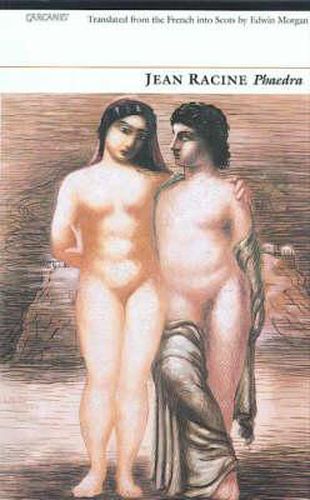Readings Newsletter
Become a Readings Member to make your shopping experience even easier.
Sign in or sign up for free!
You’re not far away from qualifying for FREE standard shipping within Australia
You’ve qualified for FREE standard shipping within Australia
The cart is loading…






The poet Edwin Morgan has translated this French classic tragedy, with its measured and highly formal rhetoric, into a vigorous, specific idiom: a Glaswegian-based Scots. He considers it at once true to the drama and psychology of Racine’s play, but also answers the dramatic needs of modern theatre. His aim is to make the play speak with immediacy and to remove the hushed respect with which Racine is often presented. Phedre was first perfomed in 1677 as Phedre et Hyppolite . It is Racine’s last secular tragedy, drawing on the Hippolytus plays of Euripides and Seneca. Phaedra, wife of Theseus, King of Athens, is in love with her stepson Hippolytus who is in love in Princes Aricie. When Theseus is absent, presumed dead, Phaedra confesses her love. When Theseus returns Phaedra allows Hippolytus to be accused of attempted rape. Theseus rejects his son, who dies in battle with a sea-monster. Phaedra, torn by guilt, confesses and takes poison.
$9.00 standard shipping within Australia
FREE standard shipping within Australia for orders over $100.00
Express & International shipping calculated at checkout
Stock availability can be subject to change without notice. We recommend calling the shop or contacting our online team to check availability of low stock items. Please see our Shopping Online page for more details.
The poet Edwin Morgan has translated this French classic tragedy, with its measured and highly formal rhetoric, into a vigorous, specific idiom: a Glaswegian-based Scots. He considers it at once true to the drama and psychology of Racine’s play, but also answers the dramatic needs of modern theatre. His aim is to make the play speak with immediacy and to remove the hushed respect with which Racine is often presented. Phedre was first perfomed in 1677 as Phedre et Hyppolite . It is Racine’s last secular tragedy, drawing on the Hippolytus plays of Euripides and Seneca. Phaedra, wife of Theseus, King of Athens, is in love with her stepson Hippolytus who is in love in Princes Aricie. When Theseus is absent, presumed dead, Phaedra confesses her love. When Theseus returns Phaedra allows Hippolytus to be accused of attempted rape. Theseus rejects his son, who dies in battle with a sea-monster. Phaedra, torn by guilt, confesses and takes poison.